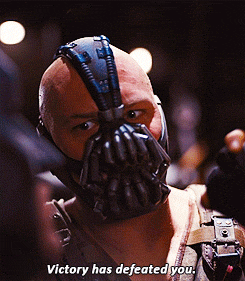Stairway to Antifragility
Negativa, stressors and Lindy
If you have been following me for a while you already know that I’ve learned a lot from the Incerto series by Nassim Taleb. I thought I’d share some takeaways from the book.
What makes one Antifragile?
If you drop a glass bowl it breaks. It’s fragile when exposed to randomness.
If you drop a steel bowl nothing happens. It’s robust when exposed to randomness.
Now imagine a bowl that actually gets stronger every time it is dropped. That bowl is Antifragile as it benefits from randomness.
Anything that has more upside than downside when exposed to random events is said to be Antifragile.
Antifragile Via stressors
What’s important to highlight is that you cannot become antifragile by trying to eliminate randomness from your life. Antifragility is not the absence of randomness. It is rather the situation when you thrive from randomness.
You need small stressors to make you more robust. Here Taleb gives the example of children whose parents protect them from every small stressful situation. Due to their overprotective parents, these children grow up without the ability to deal with stressful situations. (Not ideal)
In the medical field, taking antibiotics for every small problem can change bacteria so much that antibiotics don't work against them anymore. Sometimes you need a small stressor. The whole idea of a vaccine is to train the body to better fight a disease using a small dose of the disease itself. (Yes, it’s more complicated than that but you get the idea)
Weight lifting, running, or any other exercise is actually a stressor to the body which helps one remain healthy and fit. Simply lying in bed the whole day without any stressors does more harm than good. (Unfortunately)
Even in competition, we need stressors. The best horses tend to lose when they compete with slower ones. They perform better when they are against stronger rivals. The absence of challenge can often lead to fragility. As Bane from The Dark Knight Rises would say -
As small stressors are useful, artificially trying to suppress them can lead to fragility. Taleb calls this "naïve interventionism".
Antifragility Via Negativa
Nassim Taleb defines via negativa as "The principle that we know what is wrong with more clarity than what is right, and that knowledge grows by subtraction. Also, it is easier to know that something is wrong than to find the fix. Actions that remove are more robust than those that add because addition may have unseen, complicated feedback loops."
The simplest way I tend to understand it is by inverting the problem at hand. Instead of asking "Which restaurant do you want to go to" ask the question "Which restaurant do you not want to go to."
While that sounds so simple, I think it's a super-powerful concept. Think about Buffett's investing rules. "The first rule of investment is, Never to lose money. The second rule is, Never forget Rule 1."
His rule is not about some positive idea to generate alpha. It's actually about not losing money. It's inverting the problem. It’s about avoiding stupidity rather than seeking genius. (Munger fans where you at!)
Inversion is used heavily in the medical field. When there is uncertainty about what somebody is suffering from, a lot of tests may be prescribed so that certain diseases or medical issues could be removed from contention. Either that or there is good money to be made for the medical practitioners.
Legendary bowler Glenn Mcgrath may have subconsciously applied inversion too. Instead of thinking about how he can take wickets, he must have thought about how he cannot take wickets. Mcgrath probably knew that the probability of getting wickets on bad balls in test cricket is minute and hence his strategy was to prevent bad balls rather than try for something incredible. It clearly worked for him. He did not swing it the most or bowl it the quickest but he made sure that the ball landed in the right place.
Antifragility Via Lindy
Taleb writes, "For the perishable, every additional day in its life translates into a shorter additional life expectancy. For the nonperishable, every additional day may imply a longer life expectancy. "
It basically is saying that the longer a nonperishable item survives the longer it can be expected to survive. The idea of restaurants has existed for at least twenty-five centuries. (taverns) The concept of wearing shoes is almost fifty-three hundred years old. Silverware used in restaurants is based on Mesopotamian technology.
When trying to think about what the future may look like, a good idea would be to see what has actually survived the test of time already and bet on the same. Lindy touches on the idea that things that survive the test of time have some innate robustness that may not be visible to the human eye.
Take books as an example. If a book has survived over 50 years and is still being printed chances are it will carry on being printed for another 50 years. On the other hand, it is hard to say a book will print for another 50 years if it has only been in print for 6 months. When trying to write content that remains relevant for a long time, it may be easier to actually think about the past rather than the future.
If people 50 years ago could perfectly understand what you wrote, chances are people 50 years later would also be able to understand the same. Fooled by randomness by Taleb was written almost 20 years ago and is still talked about!
Antifragility Via Fragility
Taleb writes that "Had the Titanic not had that famous accident, as fatal as it was, we would have kept building larger and larger ocean liners and the next disaster would have been even more tragic. So the people who perished were sacrificed for the greater good; they unarguably saved more lives than were lost."
While the single parishes the whole system gets stronger. For a system to become antifragile, it needs to have the ability to allow single individuals or institutions to fail without dragging the whole system down. This can only be achieved through decentralization.
The VC world is built on trying different stuff and then if you fail, you fail. It is Antifragile as others learn from your mistakes. The industry is decentralized. The Banking world on the other hand is fragile because the collapse of one impacts the whole system and hence the centralization makes the system even more fragile.
Taleb also talks about how bailing out companies can often further fragilizes the system as you are not allowing companies to learn from their failures. Instead, you keep a fragile company alive longer which actually worsens the issue.
If you made it this far, I hope I’ve inspired you to go check out the book. Also do consider subscribing to the newsletter if you have not already!


